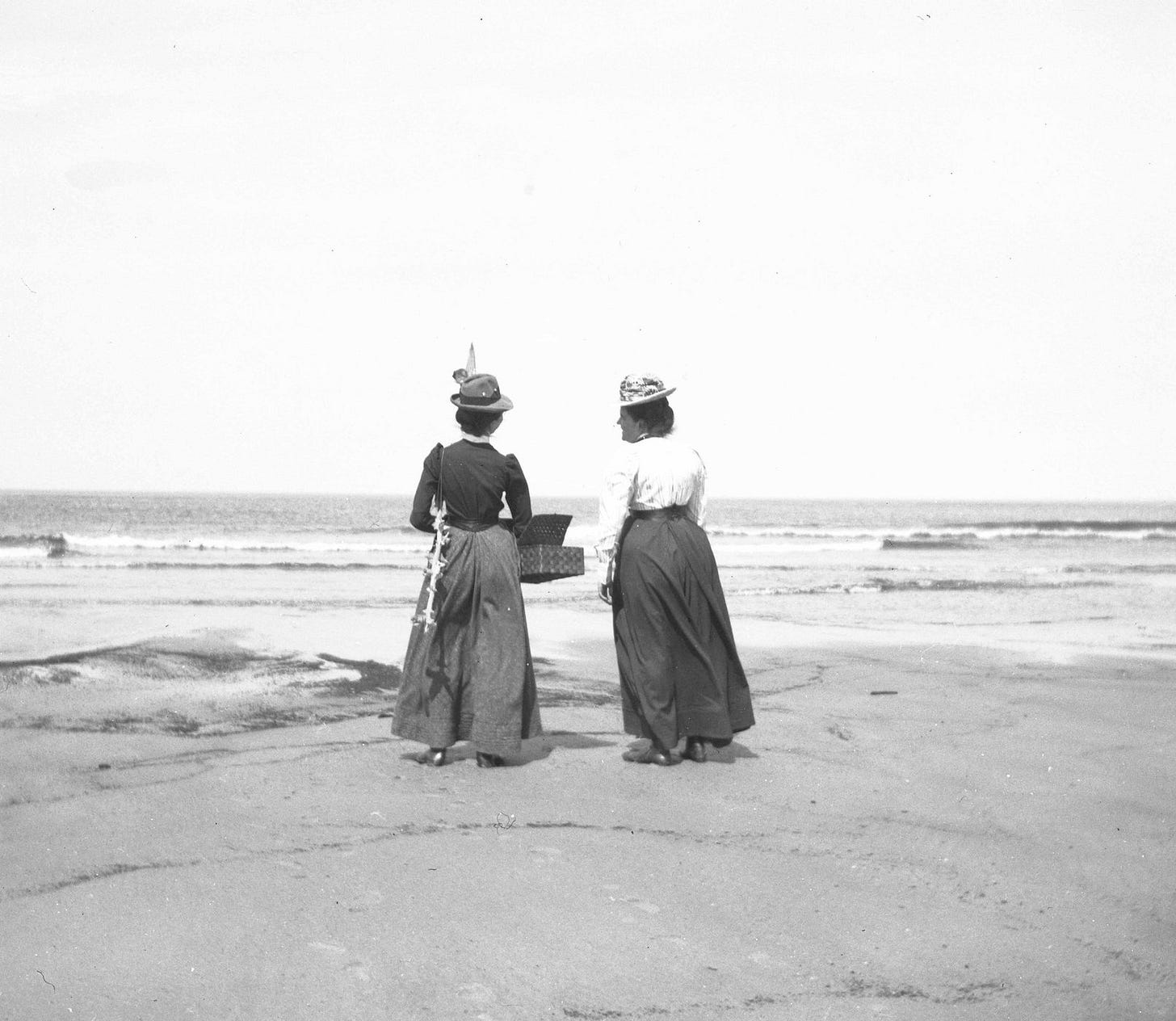On taking (real) time off
How stepping away can help you grow your business.

I’m off this week. Like really off. OOO message off.
Like many of my clients and other female founders I know, I don’t do this nearly often enough. And this is a problem.
It’s all to easy to succumb the idea that you can’t step away, you don’t have the time, your clients and the business can’t survive without you… whether you’re a solo operator or have a team.
First, it’s simply not true. And second, there are consequences of believing that it is.
What happens when you don’t take true vacation time.
Taking time off and away from the business is a topic that comes up in client coaching sessions. We discuss its importance. We consider timing. We negotiate the length of time and where they might want to go. One week seems to work. Two if they’re committed and have somewhere further afield they want to travel.
And we create a plan for the work that will and won’t get done while they’re away.
There’s a reason I push so hard for them to make it happen. I see them burning out in real time. It takes a toll on their health, energy levels, and passion for the business.
Here’s some data to back this up.
Chronic overwork raises a real health risk. Working ≥55 hours/week is linked to a 35% higher stroke risk and 17% higher heart disease risk versus a 35–40 hour week. (Source: National Library of Medicine/PubMed Central)
Founders are especially exposed. In the EU, 30% of self-employed people work long hours, compared to 4% of employees. Just imagine the numbers in the U.S. (Source: the European Commission)
Never mentally “clocking out” fuels burnout and poor sleep. Analyses show low psychological detachment from work correlates with higher exhaustion and fatigue, worse sleep, and lower well-being; working during supposed time off further undermines recovery (! emphasis, mine). (Source: National Library of Medicine/PubMed Central)
Half-in, half-out time off drains cognition. Even the mere presence of your own smartphone (not using it) measurably reduces working memory and fluid intelligence—so “quick checks” on vacation quietly tax your brain. (Source: Hendrix College)
Okay, so that’s the downside of not taking a proper vacation (even stay-cation). What’s the upside of booking time off?
What can happen when you do.
There are meaningful benefits from true time off.
Here are a few:
Stress drops and energy rebounds, quickly. Studies show even short vacations reduce stress and improve well-being, with gains persisting ~2–4 weeks (and in some measures up to 45 days) when you actually detach. (Source: National Library of Medicine/PubMed Central)
Creativity gets a lift. Allowing your mind to wander (instead of constantly checking in) improves post-incubation creative problem-solving. This is useful for big-picture strategy and product/offering ideas that need fresh insight. (Source: Association for Psychological Science)
Performance doesn’t suffer; it often improves. An HBR-reported Ernst & Young analysis found that every additional 10 hours of vacation taken correlated with an 8% bump in year-end performance ratings; teams that enforced predictable, protected time off reported higher satisfaction and retention while sustaining client service — worth noting if you have a team… they need to be booking time off too. (Source: Harvard Business Review)
Sleep and mood stabilize. Post-vacation follow-ups show better sleep quality and energy levels and lower perceived stress. These are the foundations for better decision-making and leadership presence back at work. (Source: various, including National Library of Medicine/PubMed Central)
And here’s what else I’ve seen:
Business comes in when you’re out — I’ve experienced this in my own business. Just booking the darn thing tells the Universe you’re worthy of more.
Creativity blossoms — One client booked time off in a way that worked for her and a new creative project was born in that continued after she returned (not the original plan).
Renewed energy for the business — It’s hard to get excited about your business when it’s one more day in a string of too many days. I see my clients come back after time away with more patience, new ideas, and a heck of a lot more passion.
How to make it happen.
If you’re going to step away, make it count.
Here are a few non-negotiables that make for meaningful “time off”:
Set a clear OOO message. Don’t just say you’ll be slow to respond. Say you’re unavailable and who to contact in your absence. This sets expectations and protects your time. If there’s no one to contact while you’re out, let the recipient know you’ll follow up as soon as possible after your return date.
If possible designate a point person. Even if you’re a team of one, line up a VA, colleague, or trusted peer who can handle small fires or at least reassure clients they’re heard. If you don’t have that person, make sure clients know you’re not abandoning them and will be on it the moment you’re back.
Hide the temptations. This may seem a bit extreme, but consider deleting work apps from your phone, log out of email, and physically move your laptop out of sight. Out of reach = out of mind.
Plan your re-entry. Block a buffer day on your calendar before diving back into meetings and deadlines. It gives you space to follow up with clients, sort email, reorient, and extend the vacation calm.
Start small if you have to. If a week feels impossible, start with a long weekend and build up. The habit matters more than the length at first. Just book it.
The goal isn’t just time away. It’s creating the conditions where your brain, body, and business can reset and you can come back sharper, calmer, and more creative.
Something to consider.
When was the last time you gave yourself a real break — no email checks, no “just a quick reply,” no mental load of work running in the background?
And what would it take for you to create that kind of space this year?
Until next time,
Katherine
#ICYMI







